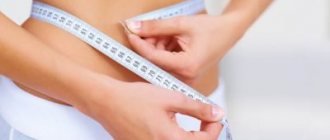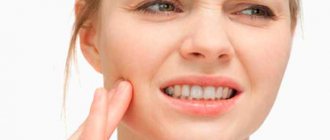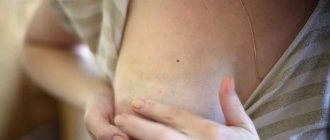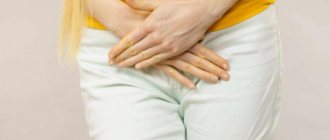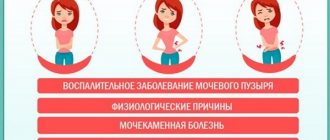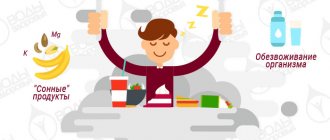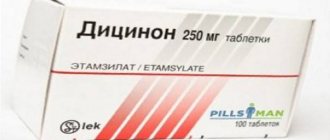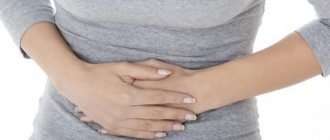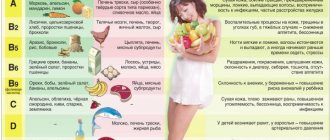Briefly about the physiology of women
During the menstrual cycle, hormonal levels are constantly changing. The level of estrogen and progesterone, the main factors affecting the reproductive system, either increases or decreases. The change in hormone levels occurs, as nature intended, not synchronously. But sometimes hormonal surges and surges are so sudden that the body's systems cannot adapt and respond appropriately. Therefore, there arise:
- abdominal pain, sometimes cramping, associated with contractile activity of the uterus;
- copious bleeding, increasing due to dilation of blood vessels, decreased elasticity of their walls, and decreased blood viscosity;
- nervous overstrain due to the increased work of all body systems, which causes an irresistible desire to eat a lot, without much consideration of whether it is healthy or not;
- digestive disorders, expressed in the absence of stool or, conversely, in its excessive softness and rapidity;
- weight gain, bloating, swelling.
To avoid such symptoms, you need to limit the range of products or add something to it that will help cope with the situation.
What should you drink?
During your cycle you need to drink a lot of liquid, for example:
- herbal teas;
- infusions of dried fruits or berries;
- unsweetened compotes;
- green tea;
- mineral water.
They tone, relax and help relieve emotional stress.
Drinking coffee and black tea is not recommended. These drinks destroy vitamin C, which is lacking during the cycle. Caffeine increases nervous excitability and can provoke or increase discomfort in the lower abdomen.
How to reduce your appetite
On critical days, a state when it is impossible to resist the desire to eat a lot of everything and, preferably, the most harmful ones, is known to most women. This feeling usually occurs due to hormonal imbalance. To help reduce appetite, doctors prescribe hormonal drugs to their patients in such cases.
But you can avoid taking pills if you eat strictly according to the regimen, in small portions, but often. It is also necessary to increase physical activity, which helps relieve the nervous system and restore its controlling role in the formation of hormonal levels.
To ensure that nutrition during menstruation is beneficial and reduces appetite, you need to stick to a vegetable diet rich in fiber. It is important to have foods with slow carbohydrates - whole grain cereals and bread and pasta containing them. Saturation with water is also necessary for the normal functioning of the nervous system. Therefore, between meals you should drink small amounts of clean water, excluding sweet and intestinal irritating drinks.
Eating large quantities of fatty, high-calorie foods will not only not reduce your appetite, but may even increase it. In addition, such nutrition will negatively affect the functioning of all body systems.
What is good to eat during menstruation to avoid gaining excess weight?
In order to replenish the level of vitamins and microelements and not gain extra pounds from your diet, you need to exclude foods high in salt. Salt retains water and causes swelling.
The body does not have enough carbohydrates, so a woman craves sweets and starchy foods, but these foods need to be replaced with complex carbohydrates. They are found in vegetables and fruits, grains, cereals and herbs. Greens will help replenish vitamin C.
Complex carbohydrates should be obtained from:
- tomato;
- pepper;
- zucchini;
- berries;
- wheat;
- buckwheat;
- oats;
- bulgur;
- spinach;
- Luke;
- lettuce;
- wheat;
- whole grain bread.
Why does your appetite increase?
On critical days, due to a hormonal surge, the hunger center is activated, increasing appetite. The body wants to eat, regardless of objective needs. And it doesn’t matter to him what you eat – salty or sweet, spicy or fatty. The main thing is to drown out this signal coming from the brain.
The opposite situation occurs much less frequently, but it can also happen. In this case, it is not the desire to eat a lot, but an abnormal aversion to food. This also negatively affects the functioning of the reproductive system and the condition of the body as a whole.
Therefore, on critical days you should not refuse food. You should also not overload your stomach with food. You need to eat properly and in portions, excluding what you cannot eat during menstruation. In this case, you can reduce your appetite and prevent the body from accumulating excess calories and fat deposits.
Periods don't like refined foods.
To prevent or relieve symptoms of premenstrual syndrome (PMS), consume complex carbohydrates, found in fresh fruits, vegetables and whole grains. Unfortunately, refined foods are often made from simple carbohydrates, which our bodies quickly burn through. Once the initial rush of energy wears off, we are left feeling hungry and tired. Not the best gift for menstruation!
Read more Blood on the 10th day of the cycle reasons
Many processed and refined foods also contain hidden sugar, which can contribute to the problem of low energy and mood swings during periods. Plus, they contain salt, chemicals, and artificial flavorings to enhance the appearance and taste of the food.
You should stay away from the following foods during your period:
- White bread
- Pasta
- Packaged foods, such as potato chips, nachos, pretzels, or other snacks
- Instant rice
- Low fiber cereals
- Cookies, pastries and cakes made in large quantities (within mass production)
Buy whole grains and minimally processed foods. Try to eat organic food whenever possible. This will make your periods a lot easier!
What not to eat during menstruation
You should, first of all, avoid heavy foods, marinades, preservatives, and fast food. Although during menstruation many people have a strong craving for sweets, you should not overindulge in them either; at least for the first few days it is better to do without sweets and cakes, as well as sugar. Fast carbohydrates affect insulin production and disrupt overall hormonal balance.
In some cases, it is not recommended to consume chocolate on menstrual days. What is this case, why, when and what kind of chocolate is harmful? During menstruation, small quantities of this product can be consumed, but only its black version, with a high cocoa content - it contains magnesium necessary for menstruation, and few harmful carbohydrates. Chocolate is dangerous for those who are at risk of developing mastopathy. Milk chocolate, especially in large quantities, should not be eaten during menstruation.
In order not to cause bloating, it is necessary to reduce the consumption of the following foods in the first days of menstruation:
- Soybeans, peas, beans, chickpeas.
- Cabbage.
- Carbonated drinks.
- White bread and pastries.
- Pasta made from soft grains.
- Whole milk, heavy cream.
You can reduce pain due to uterine contractions by reducing your intake of:
- Parsley.
- Tomatoes.
- Garnets.
- Grapefruit.
The following restrictions reduce the volume of menstrual flow:
- Refusal of fast food and strong tea and coffee, alcohol.
- Absence of pickles, smoked meats, marinades and spicy dishes on the menu. In general, it is advisable to avoid salt or reduce its consumption during menstruation.
- Protecting the body from hypothermia and overheating, especially from taking hot baths, baths, saunas or showers.
What foods are best to avoid?
You need to avoid fast carbohydrates; they are found in foods such as:
- polished rice;
- semolina;
- sugar and other sugar-containing products;
- carbonated drinks;
- alcohol;
- milk chocolate;
- cakes, pastries, sweets and other confectionery products.
If you really want something sweet, you can replace sweets and cookies with dates, raisins, dried apricots, prunes, real marmalade and marshmallows.
When talking about the desire to eat something very salty or spicy, it is important to remember that the following foods can cause harm:
- any fast food products;
- chips, crackers;
- salty fish;
- canned food
Appetite during menstruation can be controlled:
- Maintain proper wakefulness and sleep patterns. Sleep at least 7-8 hours at night, and short rest breaks are necessary during the day.
- Do simple yoga or meditation exercises. They will help you relax psychologically and relieve physical tension from your muscles.
- Engaging in hobbies or activities that have long been put off until later will distract you from thoughts about food.
- Eat right and drink more fluids. But at the same time, the diet should not be judgmental and monotonous, the daily menu should be made up of different products, the menu of each day should be different from the previous one. With an inadequate diet, the appetite will be stimulated even more. Proper nutrition will help replenish the body's vitamin and mineral reserves.
- Completely eliminate prohibited foods from your diet to avoid gaining excess weight and protect your body from health problems.
What to eat during menstruation
Eating fruits and vegetables is encouraged on any day of the menstrual cycle. This diet is especially indicated during menstruation. A diet containing the following list of products will help you benefit and cope with discomfort:
- Lettuce, sorrel, spinach, dill, green onions.
- Radishes, turnips, rutabaga, carrots, beets, radishes, chard, Jerusalem artichoke, sweet potatoes, celery root.
- Baked potato.
- Fatty, sea fish, shellfish.
- Sea kale.
- Nuts of all kinds.
- Raisins, dried apricots, figs and other dried fruits.
- Flax and sesame seeds, linseed oil.
- Oatmeal and buckwheat porridge.
- Lean meat, such as poultry.
- Bananas, avocados, oranges, watermelons, melon.
- Low-fat fermented milk products, small amounts of hard cheese.
- Apples, currants and other berries.
- Honey.
Since beets promote increased peristalsis, some doubt whether they should be included in the diet during menstruation. But these fears are unfounded. Beetroot reduces pain from abdominal cramps, so beetroot salad is quite acceptable on menstrual days. You should also eat beets before your period. It increases hemoglobin during menstruation and promotes the removal of toxins, which is very important.
Diet during menstruation
Pain in the lower abdomen during menstrual periods is called dysmenorrhea and healthy foods will help to cope with it.
To have your period without unpleasant symptoms, you need to choose the right diet that will allow you to:
- Minimize pain syndrome;
- Reduce bleeding;
- Lose weight, not gain weight.
Many women notice an increased appetite before the onset of menstruation, so they try to go on a diet in advance that allows them to avoid hunger cramps. The reason for this appetite is the increase in testosterone in the body. It should be noted that the diet also helps with heavy periods, when taste preferences change, and you want food that a woman is indifferent to on ordinary days.
Progesterone is responsible for this change in tastes, which also affects increased irritability and mood swings. Restoring mental balance is ensured by increasing serotonin levels with the help of well-chosen food. During critical days, you need to create a diet taking into account the individual characteristics of the body, taste preferences, and food tolerance.
Women always observe changes in their well-being and skin condition during hormonal changes. During menstruation, certain changes are also detected in the form of fluid retention, swelling, and the appearance of excess volume. To prevent this from happening, there is a special diet during menstruation that allows you to maintain normal weight.
Women's well-being largely depends on hormones. During menstruation, hormonal levels change, various processes occur that can both worsen well-being and cause inexplicable desires in eating. Every woman has at least once noticed an increased desire to eat during the onset of her menstrual cycle. Desires are different for each menstrual period, so you should pay special attention to your diet during menstruation.
- 1-6 days. The body feels tired, exhausted, energy is lost, and you constantly want to sleep. At this time, nutritionists recommend giving preference to calcium, drinking more herbal teas, and giving up animal fats, which will only worsen your health. Sweets should also be excluded from the diet; raisins, dried apricots and other dried fruits are allowed in limited quantities;
- 7-12 days. At this time, there is a surge of energy, you want to eat much less compared to the first week of the menstrual cycle. You need to eat little, mainly foods that contain folic acid. The diet should consist of green vegetables and fresh herbs, wheat bran. It is important to completely avoid trans fats and fast foods. They will burden the stomach, slow down metabolic processes, and contribute to the gain of body fat. This period, on the contrary, is the best for losing weight;
- 13-15 days. At this moment, ovulation occurs; it requires increased attention in nutrition and complete saturation. Nutritionists recommend eating wheat bread and brown rice at this time. You should avoid sweetened foods because they will negatively affect your hormonal levels. If the goal is to get pregnant, the diet should contain products such as sunflower oil, vegetable oils, whole milk, soy, fatty fish;
- 16-28 days. After ovulation, if pregnancy does not occur, the woman observes a deterioration in well-being, irritability, a large appetite, and an increased desire to consume prohibited foods. The diet should include foods that contain a lot of fiber and magnesium. You need to eat bananas, corn, sprouted grains, green vegetables, legumes, bran, dried fruits and other foods containing magnesium. It is worth completely removing salt from the diet, it retains fluid and promotes weight gain.
If a woman’s body experiences pain during menstruation, it means that it needs more careful care and increased attention. It consists not only in limiting active physical activity, but also in nutrition.
To minimize pain, you need to know what to eat during your period and a few days before it starts. It is at this time that you should gradually switch to taking vegetables, bran, buckwheat and rice porridge. They will saturate the body with all useful components, will not cause pain, and will make it easier to respond to hormonal changes.
We invite you to familiarize yourself with the average weight gain during pregnancy
The diet includes the following products:
- Vegetables;
- Fruits;
- Bran;
- Lean meat;
- Fish;
- Seafood salads;
- Whole wheat bread;
- Cereals;
- Green beans;
- Eggs.
It is important to normalize the amount of protein in the body. If you cannot regularly consume protein foods, you can use protein bars or shakes.
It is necessary to reduce any products that contain salt. Products with magnesium, potassium and calcium can reduce uterine tone, reduce pain, and make you feel better in the first days of painful menstruation.
Ginger or chamomile tea will help you feel better. They will relieve spasms, relax, normalize all processes, and allow the body to quickly cope with the current situation. In the first days, it is recommended to saturate the body with vitamin E; it is enough to consume 300 mg per day. Vitamin E is found in avocados, corn, soybeans, and beans. If desired, pharmacy vitamin E can be replaced with the listed products.
The first half of the menstrual cycle promotes fat burning, so it must be additionally saturated with the following foods:
- Buckwheat grain;
- Whole wheat bread;
- Rice cereal;
- Vegetables;
- Fruits;
- Raw seeds.
These foods can cause gas to form in the stomach, creating additional discomfort such as bloating. To avoid side effects, normalize the functioning of the gastrointestinal tract, and get rid of irritation, the diet should not contain such products.
During menstruation, it is necessary to follow a diet that will not only preserve your current weight and not replenish kilograms, but will also prevent complications during menstruation. Let's look at how to lose weight during menstruation and what foods to focus on in your diet.
Every day you need to change your diet, making it based on healthy foods. One day of diet looks like this:
- Breakfast. Cottage cheese, green tea;
- Lunch. Orange banana, glass of water;
- Dinner. Boiled chicken, vegetable salad;
- Afternoon snack. A glass of kefir;
- Dinner. Baked fish with vegetables and lemon.
Having a list of prohibited and permitted foods, each person can create a diet based on personal preferences and wishes. It is important to give up flour and sweet, fatty and salty foods. During menstruation, the body is more susceptible to these types of products, so it will process them into fats and store them as body fat.
It is advisable to include decoctions or teas based on natural herbs in your diet. Chamomile, mint, and ginger would be a good option. They take just a few minutes to prepare. If you don’t have time to prepare a full-fledged tincture or brew a decoction, you can give preference to tea based on them, without adding sugar. Such drinks will not only be tasty, but also as beneficial as possible for the body.
Hormones such as progesterone and estrogen are responsible for the hormonal background of women. At the beginning of the menstrual cycle, the amount of estrogen increases and progesterone decreases. This nuance is simply impossible to control. Before the menstrual cycle, hormones force the body to store excess fluid, as it is lost by the body along with secretions. As a result of excessive amounts of water, swelling occurs, which disappears after a few days.
But this is not the only reason why weight gain is observed during menstruation. At this time, hormone surges occur, which provoke appetite. It becomes uncontrollable, women cannot deny themselves many foods, and eating breakdowns are observed. To avoid this, you need to follow a diet before and during your menstrual cycle.
Sport is an integral part of the lives of many women, which helps them keep themselves in good shape, control their weight and have a good mood. The question arises of how sports affects the body during menstruation, and whether it can be practiced without harm to health.
Each type of fitness has a beneficial effect on the body, improves metabolic processes, and prevents the accumulation of excess fat. Is it possible to lose weight during menstruation by exercising? Of course, if you normalize nutrition and activity during the menstrual cycle, weight loss will occur.
Experts do not recommend giving preference to intense training in the first days of the onset of menstruation; a slight load at a minimum pace is indicated for maintaining tone and improving mood. On the third day of the menstrual cycle, if there is no pain, the intensity can be increased. Moderate exercise will only have a beneficial effect.
We suggest you familiarize yourself with what a man and a girl need to eat to quickly gain weight
Reviews of those losing weight
The diet during menstruation is used by many people who are losing weight, who leave their feedback on the results achieved and the effectiveness of the diet. If the diet is chosen correctly, taking into account all the characteristics of the body during menstruation, the result will be impressive.
Healthy foods
Among the foods necessary for the body, there are those that can cause undesirable effects, but are still useful on critical days, for example, legumes and cabbage. They contain a lot of calcium, vegetable protein, and fiber necessary during menstruation. They have antioxidant properties. If the doctor’s recommendations do not limit the consumption of such vegetables, then you can safely use them in your diet. Otherwise, it is better to stick to a more correct menu. You can get all the necessary microelements and nutrients from many foods - for example, nuts, fish, leafy vegetables, berries, fruits. When thinking about what to buy for the table, you need to strive to improve the condition of your body, then your well-being and health will definitely return to normal.
4.Seeds
Pumpkin seeds are usually sold in small bags, so you can easily take them with you on the road or on a walk. You should take them if you experience pain or cramps during menstruation.
© izzzy71/Getty Images Pro
The seeds contain zinc, which reduces discomfort and normalizes the menstrual cycle.
The seeds contain magnesium, which helps produce serotonin (the hormone of joy). Thanks to this mineral, you get rid of swelling and your mood improves. The seeds can be combined with spinach, which also improves your condition during menstruation, and cranberries - a source of vitamins and pain syndrome will be much less noticeable.
This product is rich in omega-3 fatty acids.
They reduce the feeling of heaviness in the chest and, like zinc, relieve menstrual pain.
If you can't find pumpkin seeds, look for a substitute in the form of sunflower or sesame seeds. Sunflower seeds are sources of vitamin E, which is beneficial for menstrual cramps.
It doesn't matter which seeds you choose, as long as the seeds do not contain salt. Salt can make your condition worse.
If it's pumpkin season, try cooking your own pumpkin seeds.
How to cook pumpkin seeds?
They need to be dried at 160°C in the oven for an hour, and then add a little vegetable oil.
You will need to roast them in the oven and use only a little oil.
You can try making your own homemade cinnamon seeds, as many people like this dish.
Many people don’t like sunflower seeds as a separate dish, and if you are one of those people, then try it
Salad with pumpkin seeds
https://youtu.be/-OtO-dyXZvw
In such dishes, the seeds are almost not felt and you can get rid of unpleasant sensations during menstrual periods.

